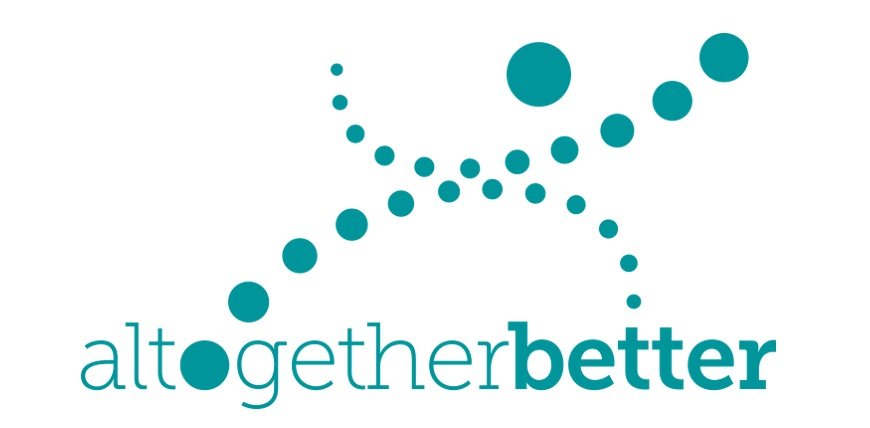Improving racial equality in the NHS workforce requires deliberate systemic effort
8 February 2024
Alyson McGregor MBE is National Director of Altogether Better
It was encouraging to read in The Guardian this weekend that Labour have announced plans to extend equal pay rights to staff from minority ethnic communities. Their draft race equality act would give the same protections from pay discrimination on the basis of ethnicity and disability as women currently receive.
This would be a great step forward. But it’s only looking at one small part of the inequalities faced by staff from diverse backgrounds. And as we know, legislation on its own has not yet got women either equal pay (female hospital doctors are currently paid 18.9% less than their male equivalents, for example) nor equity in promotion.
It’s not just a pay problem, it’s a system problem
The latest data from the NHS Workforce Race Equality Standard (WRES) shows that despite the NHS workforce being more diverse now than at any other point in its history, minority ethnic staff still remain proportionally under-represented in senior positions, and are more likely to experience bullying or abuse from both patients and colleagues.
Other noteworthy stats from that report include:
Only 44% of ethnic minority staff believe they’re given equal opportunities for career progression. This is even lower (35.4%) when you just look at staff from a black background.
White shortlisted job applicants were 1.54 times more likely to be appointed from shortlisting than those from minority ethnic communities.
On average, ethnic minority staff were 1.14 times more likely to enter a formal disciplinary process compared to white staff (increasing to 1.25 in just under half of trusts).
Despite years of the NHS monitoring these numbers and being aware of the problems, progress towards reducing disparities has been disappointingly slow.
Take the fact that shortlisted candidates are 1.54 times more likely to be appointed if they’re white. Numbers fluctuate yearly but there’s been no overall improvement in this statistic in seven years.
So what can we do to change things?
Quoted in the Guardian article, Dr Shabna Begum from the Runnymede Trust describes this challenge as unpicking a racism that’s ‘sewn into the very fabric of the system itself’.
Our own work with NHS organisations, particularly around widening access to healthcare support worker roles, reflects these challenges. It’s not just as simple as paying people equally.
There are lots of reasons why traditionally NHS organisations haven’t been very good at attracting or keeping people from diverse communities – and many of those reasons are connected to the unconscious bias and institutional racism that are built into the workings of organisations.
It takes a very conscious effort to unpick this, but the benefits are huge. As a Non-Executive Director for an NHS Trust, where I’m chair of the Quality & Safety Committee, I have seen for myself how successfully recruiting and developing staff who represent the diverse communities they serve is not only morally right, but also improves quality of care and reduces cost for the NHS.
A conscious effort at system level
Most NHS organisations have workstreams aiming to overcome these issues, but still progress is too slow. We’ve found a deliberate and targeted programme of activity at system level is needed to really speed up progress.
In 2023 NHS England commissioned Altogether Better to design a ‘supporting systems change’ programme to widen access to healthcare support worker roles.
We delivered a collaborative leadership programme with eight trusts across NHS North East & Yorkshire. This was designed to support system change to better recruit, develop and support people from diverse communities into these roles.
Drawing on research, international best practice, insights from successful trusts and a comprehensive survey we ran with over 1,400 healthcare support workers, the programme provided a structured framework, tools and practical support to address these challenges.
24 senior leaders took part, working together in trust teams to analyse and understand their existing data and come up with ideas and solutions. This included exploring the systemic biases in who we recruit, support, make welcome and promote within organisations.
Listen, act, change
Among other things, we brought in the voice of healthcare support workers, inviting them to tell us how we could do things better. We were also excited to learn from the rigour applied by professionals in the banking industry who helped us consider how we could improve the end-to-end process of recruiting, onboarding, developing and keeping people.
We found that trust staff often started the programme with little understanding of the real costs of failing to recruit and retain the right people – both financially and in terms of quality. Quality can only be achieved if our workforce reflects the communities we serve.
Lisa Guthrie, Associate Director of Nursing at The Newcastle Upon Tyne Hospitals NHS Foundation Trust described the challenge provided by the programme as “energising and empowering” for her organisation.
"We have had an opportunity to analyse our recruitment offer for our HCSWs and look at bias within the processes, this could potentially be scaled up across our organisation – we have scrutinised our data, reviewed our recruitment pathways, removed barriers and highlighted the broad range of opportunities within our workforce for underrepresented groups in our local community… and our ambition to address health inequalities.”
Can we help you?
Our work at Altogether Better is all focused on helping the health service be fit for the future. Widening access to key roles within the workplace is a big part of this. After all, the NHS doesn’t exist without its people.
Find out more about our widening access programme or drop me a line if you want to talk about bespoke support to consciously tackle some of these issues in your own organisation.

